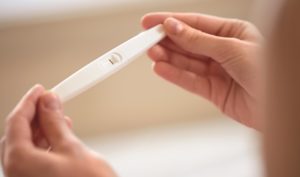Ovulation failure
Ovulatory (or ovulation) failure is a term used to describe the scenario where an egg is not released from the ovary. Regular periods (monthly cycle) do not necessarily mean that ovulation is occuring and an investigation may be required. Ovulation can be confirmed by ultrasound scans and blood tests. Ovulation usually occurs on day 14 of a 28 day cycle but varies if the cycle is longer or shorter. Mid-cycle pain and clear watery mucus may indicate ovulation.
Polycystic Ovaries (PCO)
This is the commonest cause of ovulatory failure (failure to produce and release an egg). More than 85% of our patients who have such problems suffer from this condition.
Women with this condition may not produce one large follicle each month but many small ones which fail to mature. These may not rupture and release eggs during the menstrual cycle.
Some patients with PCO also have problems with their weight and may experience excess facial or body hair.
Weight
Patients who are underweight or overweight are potentially at greater risk of not ovulating properly. This is because too much or too little body fat can prevent hormones from reaching the right levels to develop a follicle and an egg.
The Body Mass Index (BMI) is used to check that weight is in the normal range for height. This is calculated by dividing the weight (in kilograms) by the square of the height (in metres):
BMI = Weight (Kg) / Height2 (M2)
The lower limit of normal BMI is 19 but, for fertility purposes, a lower limit of 20 is often advised since some fat is required for hormone production. The upper limit of BMI is 25 and all couples trying to conceive should aim for their BMI to be between 20 and 25. For the woman the best response to all treatments occurs when her BMI is between 20 and 25. Treatment, particularly drug therapy, is unlikely to be successful in women who are overweight.
Drug therapy and fertility treatment will not normally be commenced when a woman’s BMI is 30 or more.
Abnormal cervical mucus
Normal cervical mucus is very important if natural conception is going to occur. When a woman ovulates the mucus changes. The amount of mucus increases and it becomes clearer and thinner. These changes in the mucus allow sperm to pass through into the womb and fallopian tubes at the correct time in the cycle, hence this is the best time for intercourse to produce a pregnancy. If mucus is of poor quality then this can be (but is not always) an indication that ovulation is not taking place.
Treatment options
Treatment for failure of ovulation is usually quite straight forward. It usually involves drugs but can also involve surgical treatment. Detailed information can be found on our ovulation induction page.
